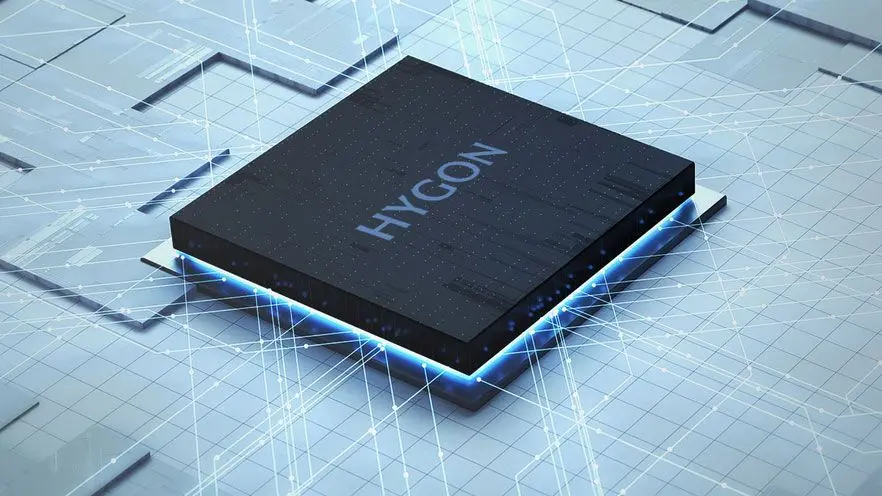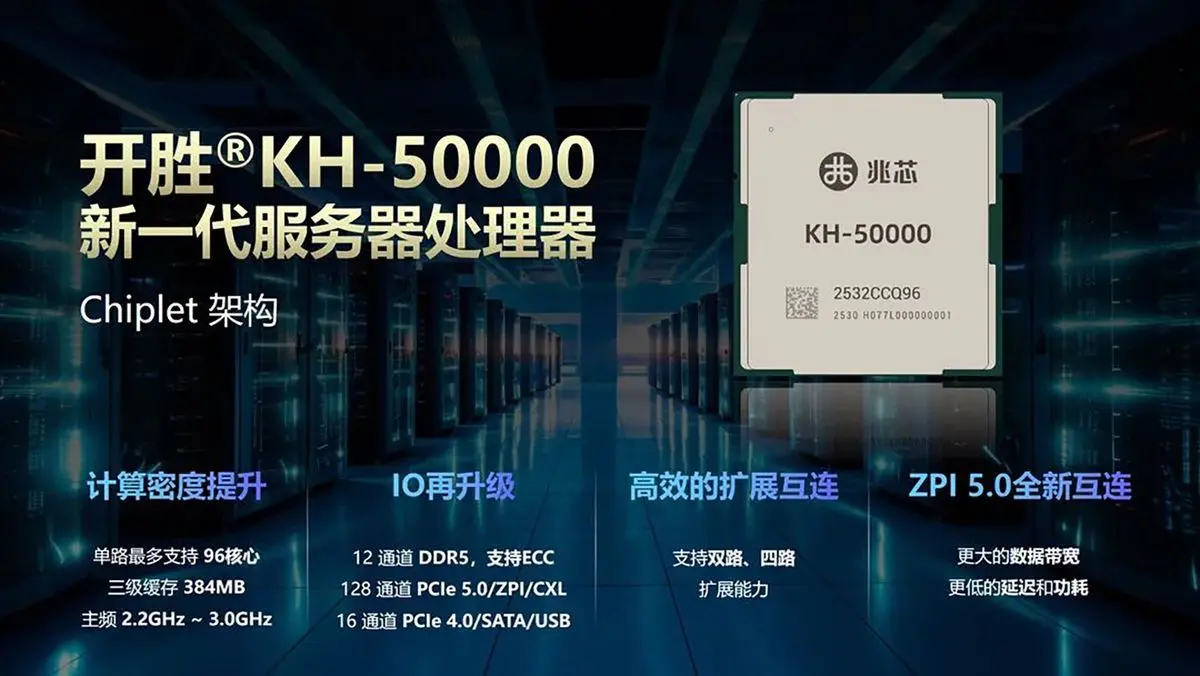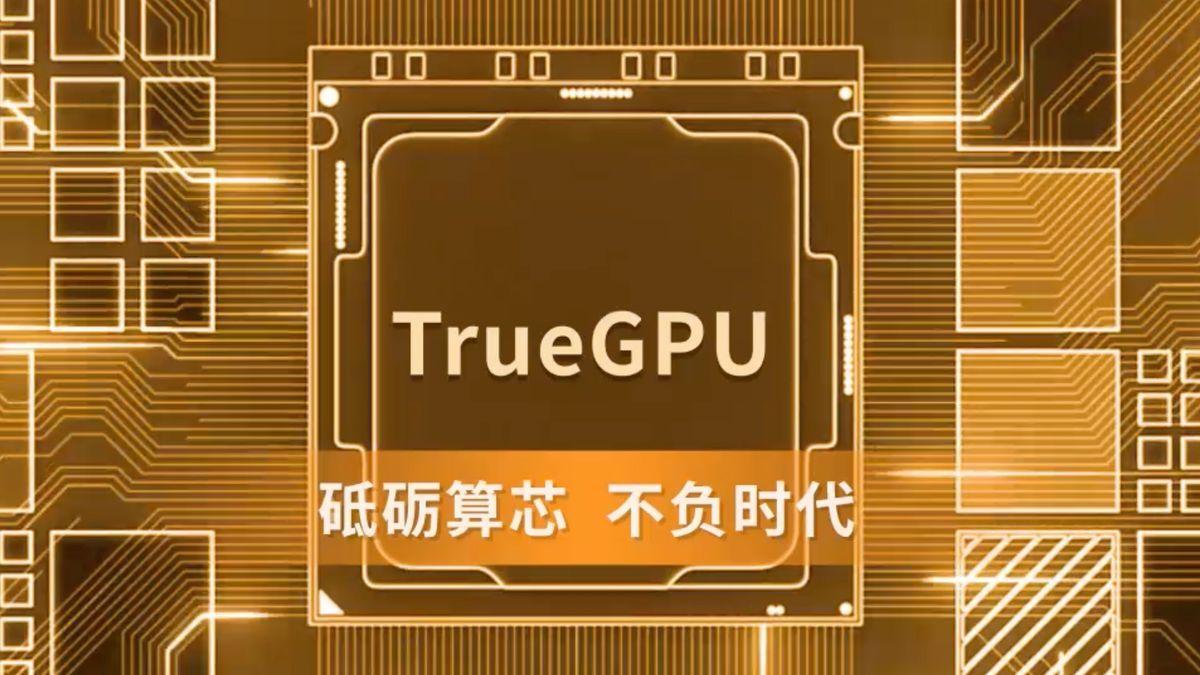China's Hygon and Sugon Merge to Create Supercomputing Powerhouse Amid US Sanctions
2 Sources
2 Sources
[1]
China's Hygon and Sugon merge to form a vertically integrated supercomputing giant as they fend off US sanctions
Hygon's processor know-how reinforces Sugon's supercomputer smarts. A highly significant China tech industry merger looks set to go ahead, reports the South China Morning Post (SCMP). The Hong Kong-based organ says that the merger plan between chip designer Hygon Information Technology and supercomputer maker Sugon marks "a major move to consolidate two of the leading players in China's computing supply chain." We may be seeing the forming of a highly impactful vertically integrated supercomputing giant that has blossomed in the shadow of U.S. sanctions. The proposed deal involves Hygon absorbing Sugon shares in a stock-swap agreement. Should the process complete successfully, with both companies' shares being taken off the open market for up to 10 trading days, the newly consolidated entity will appear on the Shanghai stock exchange. To give this merger some context, regular Tom's Hardware readers will be aware that Hygon chips leverage the AMD Zen processor architecture. However, the firm says it has moved on from those days. In a recent report we published highlighting an extraordinary Hygon C86-5G, a 128-core, 512-thread CPU with AVX-512 and 16-channel DDR5-5600 support, we quoted a company exec asserting it uses a "new self-developed microarchitecture" in its latest designs. Our previous reports on Sugon made clear its existing close relationship with Hygon. In recent years, the supercomputer maker leaned heavily on Hygon x86 chips to develop high-performance platforms. Sugon is backed by the Chinese Academy of Sciences, explains the SCMP, and has managed to push China into the "global top three for supercomputing," it is claimed. Both Hygon and Sugon are on the U.S. Entity List, which means they can't get direct access to chips from U.S. suppliers such as AMD, Intel, and Nvidia. Naturally, the pairing, in their new clothes, will be treated similarly by U.S. policymakers. However, that will likely be of little concern to the newly formed vertically integrated Chinese supercomputing giant. The U.S. trade measures might have drawn them inexorably together. Consolidation in the Chinese semiconductor and computing sectors has previously been forecast by analysts. This newly merged company looks like a sure-fire success, with the Chinese political will to build a formidable high-performance computing infrastructure to drive its domestic AI and big data projects.
[2]
China spawns an x86 supercomputing monster, via AMD
Chipmaker Hygon, which recently teased a 128-core, 512-thread CPU, merges with server-maker Sugon This story starts in 2016 when AMD licensed its first-generation Zen CPU design and the x86-64 architecture it used to a Chinese outfit called Tianjin Haiguang Advanced Technology Investment Co - aka "Hygon". The two companies planned to develop server-grade SoCs for the Chinese market. In the years since, Hygon used that license to develop a range of modest server CPUs called Dhyana. Linux kernel developers added support for those chips, and- per China's policy of encouraging use of home-grown products - so did Chinese giants like Tencent</a. The other player in this tale is Sugon, aka Dawning Information Industry Company Limited, a server-and-supercomputer-maker that has used Dhyana silicon, including in a machine that made it into 38th place on the Top 500 list that ranks Earths mightiest computing machines. Sugon was Hygon's largest shareholder and on Monday the two companies will merge after swapping stock. China will therefore emerge with an integrated server-and-CPU-maker capable of producing substantial supercomputers. And perhaps even extraordinary machines, too, because Chinese media recently reported Hygon is set to release a CPU with 128 cores and capable of running 512 threads. Intel and AMD long ago delivered simultaneous multithreading (SMT) that runs two threads per core. Rumors have suggested the American chipmakers might consider SMT4 in future, but it hasn't happened. Among enterprise hardware vendors, only IBM still designs its own CPUs and servers to use them (Fujitsu's heading in that direction too). However the idea of designing complementary processors and servers is popular among hyperscalers. AWS, Microsoft and Google have all done it, and so have China's Alibaba and Huawei. A combined Hygon/Sugon would certainly attract attention from many Chinese buyers. The rest of the world may be less enthusiastic, as the USA's Bureau of Industry and Security added both companies to its Entity List that names outfits suspected of conducting activities contrary to national security and foreign policy. Such activities may be the point of the merger: China's government has laid plans to use AI and big data to improve all aspects of society, including its military. ®
Share
Share
Copy Link
Chinese chip designer Hygon and supercomputer maker Sugon are merging to form a vertically integrated supercomputing giant, potentially reshaping China's high-performance computing landscape in response to US trade restrictions.
Merger Announcement and Strategic Implications
In a significant move for China's tech industry, chip designer Hygon Information Technology and supercomputer maker Sugon have announced plans to merge, forming a vertically integrated supercomputing powerhouse
1
. This consolidation marks a major step in strengthening China's computing supply chain, particularly in the face of U.S. sanctions1
2
.The merger involves Hygon absorbing Sugon shares through a stock-swap agreement, with the resulting entity to be listed on the Shanghai stock exchange
1
. This strategic move is seen as a direct response to both companies being placed on the U.S. Entity List, which restricts their access to chips from major U.S. suppliers like AMD, Intel, and Nvidia1
.Technological Advancements and Capabilities

Source: Tom's Hardware
Hygon, known for leveraging AMD's Zen processor architecture in the past, has recently claimed to have developed a "new self-developed microarchitecture"
1
. This assertion is backed by reports of an extraordinary Hygon C86-5G CPU, boasting 128 cores and 512 threads, with support for AVX-512 and 16-channel DDR5-5600 memory1
2
.Sugon, backed by the Chinese Academy of Sciences, has been instrumental in pushing China into the "global top three for supercomputing"
1
. The company has previously utilized Hygon's x86 chips, known as Dhyana, in its high-performance platforms, including a machine that ranked 38th on the Top 500 list of the world's most powerful supercomputers2
.Historical Context and Future Prospects

Source: The Register
The roots of this merger can be traced back to 2016 when AMD licensed its first-generation Zen CPU design and x86-64 architecture to Tianjin Haiguang Advanced Technology Investment Co (Hygon)
2
. This partnership aimed to develop server-grade SoCs for the Chinese market, resulting in the Dhyana series of CPUs2
.The newly formed entity is poised to become a formidable player in the high-performance computing sector. With Hygon's processor expertise and Sugon's supercomputer manufacturing capabilities, the merged company is well-positioned to drive China's domestic AI and big data projects
1
2
.Related Stories
Implications for Global Tech Landscape
This merger reflects a broader trend of consolidation in the Chinese semiconductor and computing sectors, as predicted by analysts
1
. It aligns with China's policy of encouraging the use of home-grown products, with major Chinese companies like Tencent already supporting Hygon's chips2
.The formation of this integrated server-and-CPU-maker capable of producing substantial supercomputers may raise concerns in the global tech community, particularly in the United States
2
. The merger is likely to be viewed as part of China's strategic plan to use AI and big data for societal improvements, including potential military applications2
.As the newly merged company emerges as a key player in China's high-performance computing landscape, it will undoubtedly attract attention from Chinese buyers while potentially facing scrutiny from the international community
2
. This development marks a significant shift in the global supercomputing industry, highlighting China's determination to achieve technological self-sufficiency in the face of international trade restrictions.References
Summarized by
Navi
[1]
[2]
Related Stories
Recent Highlights
1
ByteDance's Seedance 2.0 AI video generator triggers copyright infringement battle with Hollywood
Policy and Regulation

2
Demis Hassabis predicts AGI in 5-8 years, sees new golden era transforming medicine and science
Technology

3
Nvidia and Meta forge massive chip deal as computing power demands reshape AI infrastructure
Technology








